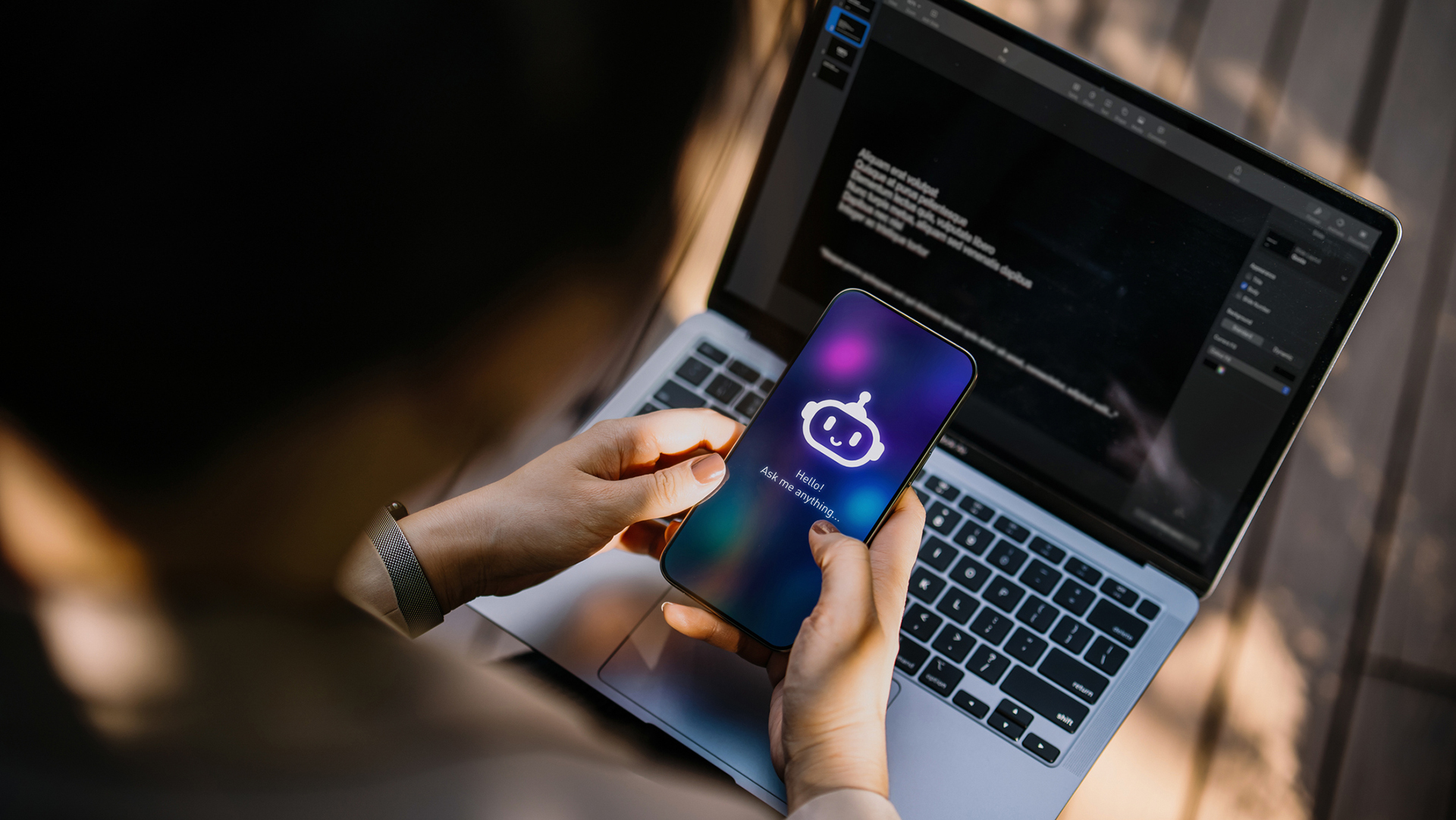Practical AI: does your business need a copilot?
Discover how companies like Balfour Beatty, Access Group, and CETfreedom are turning AI copilots into powerful partners that boost productivity, safety, and creativity


Sign up today and you will receive a free copy of our Future Focus 2025 report - the leading guidance on AI, cybersecurity and other IT challenges as per 700+ senior executives
You are now subscribed
Your newsletter sign-up was successful
AI has entered its collaborative era. Across industries, AI copilots are becoming trusted partners—accelerating workflows, improving accuracy, and enabling teams to focus on what humans do best: think, create, and connect.
As part one of this series showed, when AI is applied purposefully the payoff is tangible. Now, the focus shifts from tools that assist to systems that collaborate. Whether in construction, software development, or coaching, the real return lies in amplification, not automation.
From construction to consulting, human development to HR, AI copilots are showing that the biggest payoff is all about amplifying employee work. The question for every organization now is not if they’ll adopt AI copilots, but how they’ll make them work for their unique environment.
Building smarter, safer and faster: Balfour Beatty’s construction copilot
With 27,000 employees and major infrastructure projects across the UK, Balfour Beatty is no stranger to complexity. But as its chief information officer (CIO) Jon Ozanne explains, complexity often carries inefficiency – and inefficiency carries risk.
“We know that rework has a cost: it takes time, it takes money, and it carries health and safety implications,” Ozanne says. “This is about how we make sure we build things right the first time.”
Rework-related safety incidents account for 39% of construction accidents, according to BBI Services, while avoidable errors cost the industry between £5 and £20 billion a year, per the Get It Right Initiative. For Balfour Beatty, that was a problem worth solving. Its answer: Microsoft 365 Copilot, integrated across their operations to streamline processes, cut waste, and improve safety outcomes.
“Finding information is now so much easier,” Ozanne explains. “Copilot has proven itself hugely effective in mining our suite of Microsoft software to find and unify our data.” What once took hours of manual searching and cross-referencing now happens in seconds, giving project teams rapid insight into historical data, safety documentation, and compliance records.
Sign up today and you will receive a free copy of our Future Focus 2025 report - the leading guidance on AI, cybersecurity and other IT challenges as per 700+ senior executives
The results have been tangible. In an internal survey of early adopters, 75% said Copilot improved their work, 77% reported less mental effort on routine tasks, and 78% said it improved communication. Copilot has also become a quiet confidence booster for neurodiverse employees , helping them organize, communicate, and present ideas more effectively.
“Some of our people have said that Copilot has made them that little bit more confident to be able to communicate or present,” says Ozanne. “This isn’t about eliminating 100% of what people do – but it definitely gives them a launchpad to move forward.”
Across Balfour Beatty’s sites and offices, that “launchpad” is reshaping how teams plan, collaborate, and solve problems. “Copilot has completely changed the way we run planning and problem-solving meetings,” says project director Martin McGough. “By handling the notetaking and action tracking, it frees everyone up to focus on discussion. It has saved hours of manual review.”
Joe Chastney, head of digital transformation at Balfour Beatty, tells ITPro that Copilot has become indispensable for monthly portfolio reviews. “Copilot supports my preparation by intelligently surfacing key insights from a wide range of data sources,” he explains. “It highlights areas that require attention – such as safety, risk and cost – enabling me to focus where it matters most.”
For Balfour Beatty, this is just the beginning. New AI-driven pilots include tools that review inspection and test plans, optimize maintenance routes, and even analyze satellite imagery to assess site ecology, reducing environmental and safety risks.
“Within 12 months, I think we’re going to start to see the rise of AI agents for the ‘middle office’ of construction,” Ozanne says. “How we estimate, plan, design and manage quality assurance. Ultimately, we’ll put fewer humans in physical danger, reduce costs, and deliver safer, more sustainable projects.”
People-first AI: Access Group’s sector-specific approach
While Balfour Beatty is using its AI copilot to build physical infrastructure, software company Access Group is building the digital infrastructure of tomorrow with its Access Evo platform. This is a large-scale, secure AI ecosystem developed in partnership with Microsoft and OpenAI.
“Developing any digital platform today requires thorough and strategic thought to ensure the technology is a force for good,” says Oliver Quayle, senior group director of Access Evo Platform. “Our strategy was, and always will be, centered around creating an environment that is both highly capable and controlled.”
That balance of capability and control has delivered impressive results. Customers using Access Evo have reported an average 23% increase in profitability, with many saying the platform became self-funding within months. Early adopters have seen a 50% reduction in administrative tasks – and in sectors like education, teachers have halved the time spent marking and reporting.
But Access’s success goes deeper than efficiency. The company has achieved a 25% reduction in staff turnover, which Quayle attributes to its people-first philosophy. “Our core ethos is to use AI to enhance our people’s productivity and facilitate growth, rather than to facilitate layoffs,” he tells ITPro. “Successful transformation starts with people, not technology.”
To that end, Access has launched comprehensive AI training programs for all 9,000 employees, from certification-level technical training to AI fluency courses for non-technical roles. It has also created AI apprenticeships and scholarship programs at UK universities, ensuring the benefits of AI adoption extend beyond the company to the broader talent pipeline.
Security and privacy are equally central. Access Evo operates as a closed-loop system, ensuring no customer data is ever used for model training. “Our AI platform does not use any of our customers’ data for training, so no customer information is ever at risk of being leaked,” Quayle explains.
Looking ahead, Access plans to open the platform for customers to build their own AI applications, a move that will transform its client relationships from vendor-based to partnership-driven. “Trust and adding real value are key,” Quayle emphasizes. “When our customers are given an integrated platform that brings everything together, the relationship shifts from a supplier model to a trusted partnership.”
Everyday efficiency: how Infinity Group’s HR copilot is reshaping work
At a more operational level, Infinity Group has shown that even small-scale Copilot deployments can yield big cultural change. By automating recruitment and HR tasks, the company has reclaimed valuable hours and redefined what “human resources” really means.
Safeguards are built in. “Fairness and alignment with our values are non-negotiable,” Baldwin explains. “Every shortlist generated by Copilot is reviewed by a human recruiter to ensure compliance with our diversity and inclusion principles.”
Infinity has also deployed a self-service HR bot named Henry, designed to handle common employee queries. Since Henry went live, HR has seen a sharp drop in routine requests, freeing the team to focus on strategic initiatives.
“Employee feedback has been invaluable,” says Louise Otton, head of talent development and culture. “People love the speed and convenience, but they also helped us identify ways to improve escalation for complex issues and expand Henry’s knowledge base. Those insights are shaping our next phase of automation.”
For Otton, AI isn’t about removing the human element—it’s about enabling it. “Automation has freed our people team from repetitive tasks. We’re spending more time on culture, retention, and talent development. AI handles the admin, but empathy and judgment remain critical.”
From copilots to co-creators
Across these very different organizations, a common thread emerges: AI copilots are not about control but collaboration. Whether helping engineers build safely, teachers work efficiently, coaches listen deeply, or recruiters connect meaningfully, these systems are extending human potential, not diminishing it.
As Balfour Beatty’s Jon Ozanne emphasizes: “If we eliminate waste, we’re going to make such significant gains.” But those gains go beyond efficiency. They’re cultural, emotional, and creative.
The new AI payoff isn’t simply about doing things faster – it’s about creating workplaces where people can think, connect, and create more freely, with technology in the passenger seat, helping them navigate what comes next.
As copilots become commonplace, the next leap in AI is already emerging: agentic AI, where systems don’t just assist but act independently. In third part of this series, we’ll explore how agentic intelligence is reshaping enterprise strategy, governance, and trust.
David Howell is a freelance writer, journalist, broadcaster and content creator helping enterprises communicate.
Focussing on business and technology, he has a particular interest in how enterprises are using technology to connect with their customers using AI, VR and mobile innovation.
His work over the past 30 years has appeared in the national press and a diverse range of business and technology publications. You can follow David on LinkedIn.
-
 ITPro Best of Show NAB 2026 awards now open for entries
ITPro Best of Show NAB 2026 awards now open for entriesThe awards are a fantastic opportunity for companies to stand out at one of the industry's most attended shows
-
 Mistral CEO Arthur Mensch thinks 50% of SaaS solutions could be supplanted by AI
Mistral CEO Arthur Mensch thinks 50% of SaaS solutions could be supplanted by AINews Mensch’s comments come amidst rising concerns about the impact of AI on traditional software
